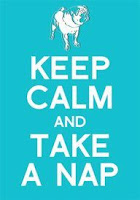So you don't have a sleep problem as such, you just feel tired all the time and lacking in energy, what could be the reason? With 1 in 5 people reporting to be feeling like this, it is a real problem and seems to be growing.
The three most common reasons fortunately are the easiest to fix.
1 Diet - constantly reaching for a the caffeine or sugar to get through the day has a detrimental effect on your health as these both cause your blood sugar levels to fluctuate and your body has to work hard to keep these levels stable. A well balanced diet full of healthy whole foods will go a long way to helping you feel more energized. Also eating healthily will help control your weight as being over-weight can contribute to feelings of tiredness.
2 Sleep - not a surprising factor, but in this fast paced world the time set aside for sleep is being eroded away. Work out how much sleep you really are getting and make time for more. You should be aiming for around 8 hours each night. Please look back on previous posts in this blog for ideas and suggestions to help you make sleep a priority.
3 Exercise - although this appears to be counter-intuitive, (why do you need to do more physical activity if you are feeling tired?) exercise has been shown to increase energy levels. Small amounts of regular exercise will not only improve your health, it will also help you feel more energized and will help you sleep better too. Try and finish your exercise 3 hours before you go to bed to make sure you have time to wind down, or do some gentle yoga before going to bed to help relax and calm you in preparation for sleep. Work your way up to 40 minutes 3 times a week.
However if you feel worse as you are exercising - beyond the usual huff and puff, then please see a doctor as soon as possible.
Take an honest look at your lifestyle and evaluate if you can make some changes as just a few tweaks and adjustments can make a big difference. You do not have to become a vegan, gym bunny overnight, instead aim for being a slightly healthy, gym hamster first! Start with achievable goals - meeting your 5 fruit and vegetable a day target, taking a 20 min walk each evening or going to bed half an hour early do not take much effort and can be the first steps to an energetic, new you. Gradually build on these baby steps and look at how you feel in a few months time to really see the changes.
If despite changes to your lifestyle you see no changes or you feel you already have a relatively balanced lifestyle or have other symptoms on top of a general lack of energy then you should see a doctor as possible. Reasons could include conditions such as anemia, thyroid disorders, diabetes and nutrient deficiencies and would need medical examinations to determine the cause and the solution.
Sweet dreams!
If you would like more help with your sleep problems then please contact me at charlotte@charlottewelply.com and we can set up a free introductory coaching session.


